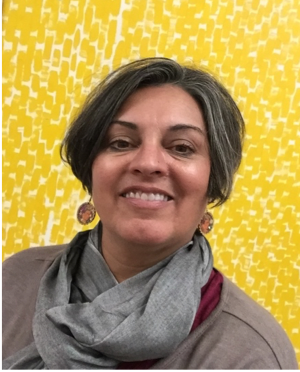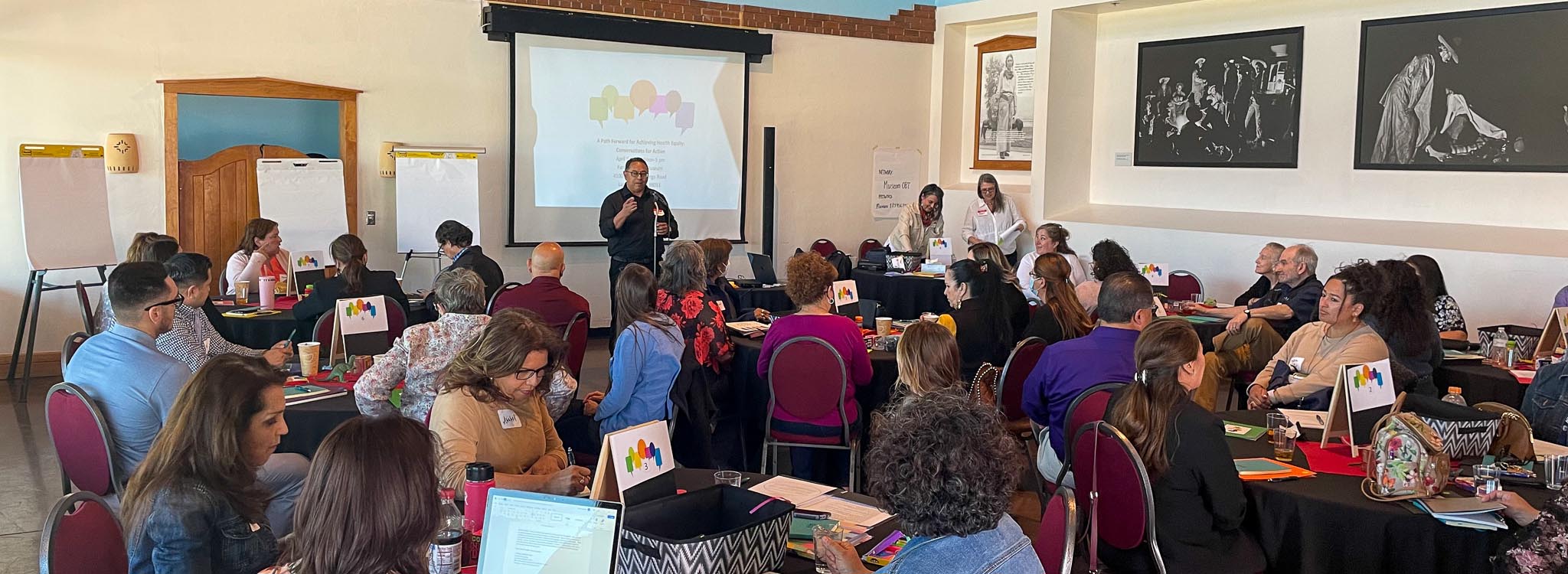The University of New Mexico’s first statewide Health Equity Summit promises to connect health care leaders and workers, employers, elected officials and citizen advocates to talk about ways to address health inequities and find solutions to help underserved communities.
The event, which is slated for Sept. 19 and 20 at the Embassy Suites in Albuquerque, has already maxed out its registration limit of 300 people.
Lisa Cacari-Stone, PhD, MS, MA, has led and organized the Health Equity Initiative over the past few months in preparing for the summit. She said health care inequities – like lack of affordable housing, transportation access and language barriers, among many others – were exacerbated by the COVID-19 pandemic.
“I think we’re at a critical moment in time where long-term structural inequities have really been amplified due to the pandemic,” said Cacari-Stone, an associate professor in the UNM College of Population Health and the executive director of the Transdisciplinary Research, Equity and Engagement Center. “All of these inequities were there before, but the pandemic revealed them more.”
Going back further, Cacari-Stone said the history of colonization in New Mexico and the resultant trauma created complexities that continue to impact the health of New Mexicans to this day.
“Colonization and genocide really set the stage for intergenerational trauma and cumulative disadvantages, which has brought us to this moment in time,” she said. “We have to acknowledge these things as we embark on the process to understand health and equity in our communities of color.”
Leading up to the Health Equity Summit, three health equity conversations were held in different areas of the state: Las Cruces, Hobbs and Gallup. A fourth one in Las Vegas was cancelled due to the wildfire emergencies.
“I designed what we called health equity conversations in which we brought people together to exchange and listen to each other – not just about problems around health, but the solutions,” Cacari-Stone said.
Those conversations helped the Health Equity Initiative planning group identify the inequity issues were most pressing in the state.
Over the two-day summit, there will be 12 “action labs” covering a host of health equity issues, including behavioral health, community health workers, youth leadership, language access, health care workforce development, broadband and digital inclusion, transportation access, educational advancement, racial justice and healing, insurance coverage, affordable housing, and environmental justice.

We’re scratching the surface. We’re not going to fix the world in one-and-a-half days together, but we can think creatively together and I’m super excited about that
“In these labs, we will be featuring one to two equity solutions from communities that will be touchstones for robust discussions on strategic actions to work and make changes at the systems and policy levels,” Cacari-Stone said. “We’re scratching the surface. We’re not going to fix the world in one-and-a-half days together, but we can think creatively together and I’m super excited about that.”
After the summit is over, Cacari-Stone said she plans to write a report she’s already dubbed the “facilitated action-planning and equity manifesto,” detailing the intersectional map of equity solutions produced during the summit and other key takeaways. Then she plans to hand the report over to organizations and officials, encouraging them to implement changes.
“We’re going to produce actionable priority items that evolve from the action labs,” she said. “This can be used as a roadmap for people to harvest and refurbish within their organizations and with state government. We hope that people will want to rally around, get energized and align resources from these promising strategies and practices that we’re going to action plan together.”
For next year’s Health Equity Summit, Cacari-Stone said she hopes to expand the number of attendees, as this year’s summit reached capacity and required a waiting list.
“This is real opportunity for UNM and the UNM Health Sciences Center to align our core mission and vision to achieve health equity for all New Mexicans,” Cacari-Stone said. “This is what we’re committing to create for the next generation.”
Partnerships for the summit include New Mexico Department of Health, Project ECHO, the Health Extension Regional Offices and community advocacy groups. The summit will be open to media outlets.
